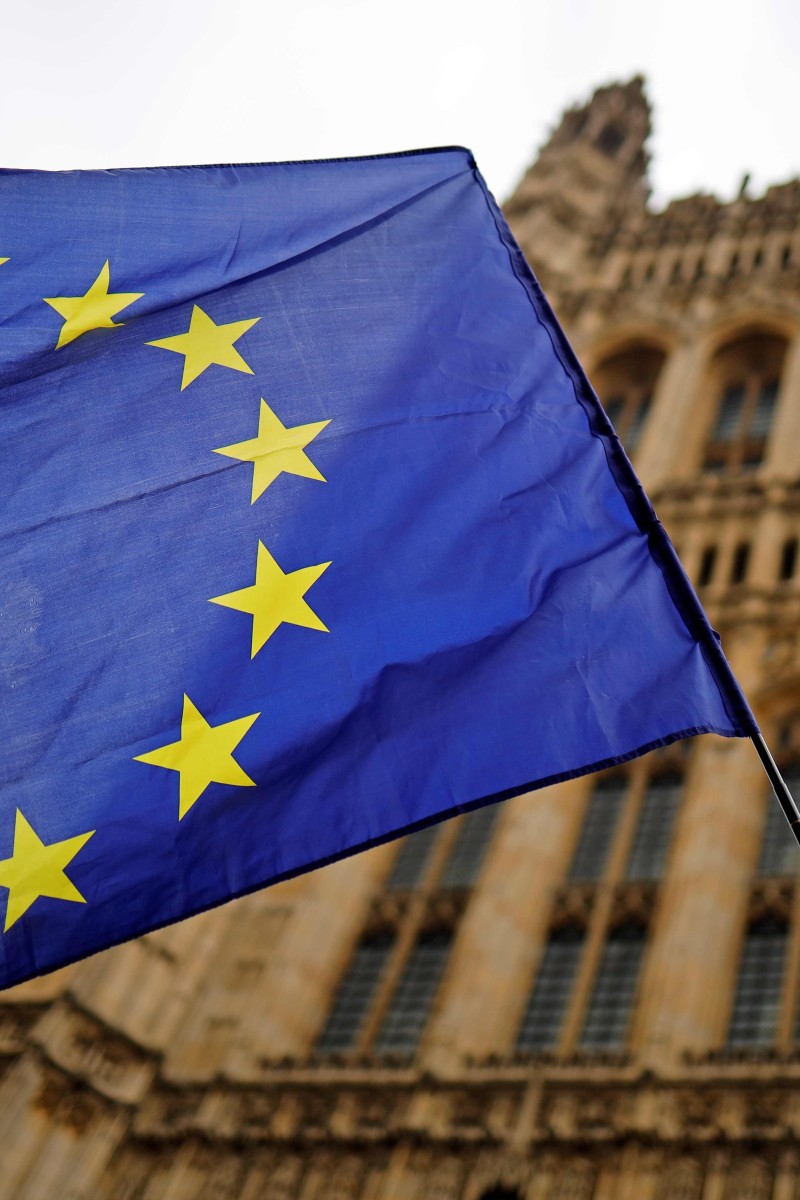
The European Union has said Britain must follow its rules if it wants to trade, but British Prime Minister Boris Johnson says there is 'no need'
 Trade talks between Britain and the European Union are due to kick off next month.
Trade talks between Britain and the European Union are due to kick off next month.Britain officially left the European Union on January 31, after nearly four years of negotiations.
For some Brits, it was a day of celebration; for others, a day of mourning.
Things haven’t changed completely overnight. Britain no longer has representation in the European Parliament, so it doesn’t get a say in how the EU is run. However, it will remain part of the EU single market until December 31, so British people, goods and services can still move around the bloc freely. Britain also still has to obey EU rules until December 31.
UK journalists walk out in protest during government briefing
The country now faces a tough 10 months ahead, as it must forge new trade deals with the EU before the December 31 deadline. Talks are due to begin next month. If a deal isn’t reached in time, Britain will have to pay taxes if it wants to trade with the EU.
Reaching a deal will be difficult, because Britain still wants free access to the EU market, but it also wants the freedom to make deals with other countries in the future.
The EU has said that Britain can only enjoy easy access to the EU market if it agrees to comply with EU social and environmental standards. The bloc is afraid that if Britain is allowed to ignore these regulations, it will be able to offer goods and services at a cheaper price than EU.
Britain has promised that it won’t try to undercut the EU, but it is also reluctant to sign a formal agreement stating that it won’t.
France in particular has warned Britain that the EU will not be lenient towards its ex-member. Both sides will want to get as much as they can from the other.
Britain’s general election could decide the fate of Brexit
On top of this, Britain will also have to figure out what to do about security and law enforcement, because it will no longer have to follow – or be protected by – EU laws. One area for concern is data protection. Britain and the EU will need to come up with a new data protection agreement so that data can still flow freely, yet also securely, between the two. This is important for business, finance and law enforcement.
As if things weren’t tense enough, the EU also plans to make Britain return a collection of Ancient Greek marbles to Greece. Also referred to as the Elgin marbles, the collection of marble statues, taken from the Parthenon in Athens some 200 years ago, are now on display in London’s British Museum. Greece has long maintained that the marbles were stolen, and has demanded they be given back, but so far, Britain has been reluctant to give them up.
In response to the EU’s new plan, Britain said the artefacts had nothing to do with trade, and that they wouldn’t be going anywhere.